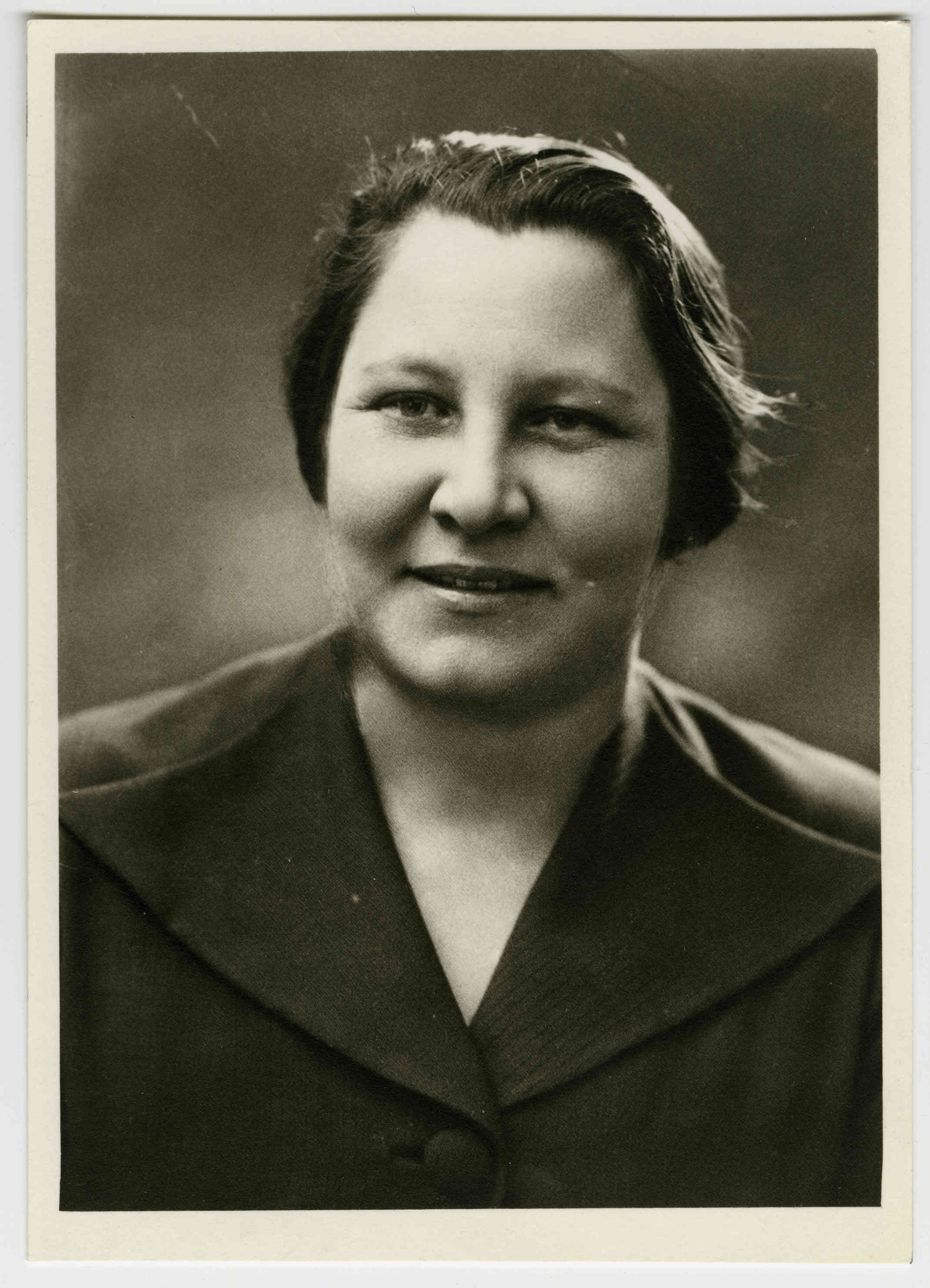
Helmi Mäelo
Helmi Mäelo (until 1923 Helmi Pett, 1923-1924 Helmi Mühlberg, 13. IV 1898 – 17. VII 1978) was a prose writer, writer for young people and social activist.
She gained her education at the Uderna village school in Tartu county and at the Estonian Youth Education Society’s Girls’ Gymnasium in Tartu, where she graduated in 1919. From 1921 to 1924 she studied in the Faculty of Law at the University of Tartu. She was a member of the Ilmatar student society and of the Estonian Women Students’ Society. Helmi Mäelo was active in civic life. On her initiative Mother’s Day became celebrated in Estonia. She was a member of Tartu Town Council. For 16 years she was the general secretary of the Temperance Society. Helmi Mäelo was the editor of the journal Naiste töö ja elu (‘Women’s Work and Life’) and one of the founders of the journal Eesti naine (‘Estonian Woman’). For 16 years, until 1940, she was the editor of Eesti naine. In 1944 she fled to Germany and later moved to Sweden. There she was the secretary of the Baltic Humanist Association. Helmi Mäelo belonged to the Estonian Writers’ Union Abroad, the Estonian PEN Club and the Swedish Writers’ Union. She is buried in the The Woodland Cemetery in Stockholm.
Mäelo wrote 12 novels. Her major work is the five-volume series of family novels Oma veri (‘One’s Own Blood’, 1965), Võõras veri (‘Alien Blood’, 1966), Keerdsõlmed (‘Knots’, 1968), Teised tuuled (‘Other Winds’, 1970), and Homne päev (‘Tomorrow’, 1972). She also published books for young people and of popular science, children’s stories and brochures about temperance and education.
In 1959 the first part of her autobiography appeared in exile under the title Talutütar (‘A Farmer’s Daughter’). The book tells of Mäelo’s childhood before the Republic of Estonia. The work contains vignettes of the Uderna school and student life in Tartu. The next book of memoirs to be published, Elutegevuses (‘Activity in Life’, 1961), collects memories of youth and her active work for temperance and public education in the years of the Estonian Republic. The series of stories from life continued with the work Võõrsil (‘Abroad’, 1974), in which the author describes the escape through Germany to Sweden and the first years in exile. In the last part, entitled Sammud edasi (‘Steps Forward’, 1975) Helmi Mäelo writes of her activity as a refugee in Sweden.
Helmi Mäelo’s most significant work of popular science, Eesti naine läbi aegade (‘The Estonian Woman Through the Ages’) appeared in 1957 in Lund (reprinted in Estonia in 1999). The book contains the most complete survey up to that time of the history of Estonian women, offering a periodization of it, and presented biographical data on, and short introductions to, many well-known women.
L. P. (Translated by C. M.)
Books in Estonian
Novels
Isata. Tartu: Sõnavara, 1928. 194 lk.
Tänapäeva lapsed. Tartu: Tungal, 1933. 160 lk.
Wallaslaps. Tartu: Postimees, 1934. 229 lk.
Eevi Altma abielu. Tartu: Postimees, 1935. 196 lk.
Teras: romaan tütarlastele. Tartu: Noor-Eesti, 1936. 255 lk.
Üliõpilane Soomest: romaan iseseisvuse algaastailt. Tallinn: Tallinna Eesti Kirjastus-Ühisus, 1940. 228 lk.
Kui oli kevad. Toronto: Orto, 1952. 223 lk.
Oma veri. Lund: Eesti Kirjanike Kooperatiiv, 1965. 288 lk.
Võõras veri. Lund: Eesti Kirjanike Kooperatiiv, 1966. 280 lk.
Keerdsõlmed. Lund: Eesti Kirjanike Kooperatiiv, 1968. 276 lk.
Teised tuuled. Lund: Eesti Kirjanike Kooperatiiv, 1970. 270 lk.
Homne päev. Lund: Eesti Kirjanike Kooperatiiv, 1972. 244 lk.
Memoirs
Talutütar: mälestusi. Lund: Eesti Kirjanike Kooperatiiv, 1959. 272 lk.
Elutegevuses: mälestusi. Lund: Eesti Kirjanike Kooperatiiv, 1961. 318 lk.
Võõrsil: mälestusi, vaatlusi, elamusi. Lund: Eesti Kirjanike Kooperatiiv, 1974. 232 lk.
Sammud edasi: mälestusi, vaatlusi, elamusi. Lund: Eesti Kirjanike Kooperatiiv, 1975. 256 lk.
Children’s stories
Pärt on minu sõber: noorsoojutt. Tartu: Noor-Eesti, 1935. 108 lk.
Salme astub ellu: jutustus noorsoole. Tartu: Noor-Eesti, 1937. 231 lk.
Soohüti Liine: lugu tütarlapsest üle viiekümne aasta tagasi: noorsoojutt. Tartu: Noor-Eesti, 1938. 113 lk.
Sangar: noorsoojutt. Vadstena: Orto, 1945. 140 lk.
Võidukarika märgi all: noorsoojutustus. New York: Eesti Koolitoimkond USA-s, 1963. 91 lk.
Writings on the temperance movement
Alkoholivaba kultuuri poole: juhtnööre naistele alkoholismivastases võitluses. Tartu: Naiste Karskusliit, 1929. 104 lk.
Tõelise elurõõmu aluseid. Tartu: Naiste Karskusliit, 1940. 15 lk.
Noor olla::: Stockholm: Eesti Komitee Koolitoimkond; Eesti Karskuskomitee, 1965. 34 lk. [narkootiliste ainete, nikotiini ja alkoholi kahjulikust mõjust noore inimese kujunemisel.]
Writings on women’s rights
Eesti naine läbi aegade. Lund: Eesti Kirjanike Kooperatiiv, 1957. 224 lk.
Miscellaneous
Tänapäeva Ameerika: vestlusi selle arengust, rahvast, linnadest, sotsiaaloludest ja kodukultuurist. Tartu: Eesti Kirjanduse Selts, 1938. 114 lk.
Kas kehv ja mahajäänud?. Lund: Eesti Kirjanike Kooperatiiv, 1964. 307 lk.
Päevast päeva: päevik 1. juulist 1975 kuni 30. juunini 1977. Lund: Eesti Kirjanike Kooperatiiv, 1977. 228 lk.



